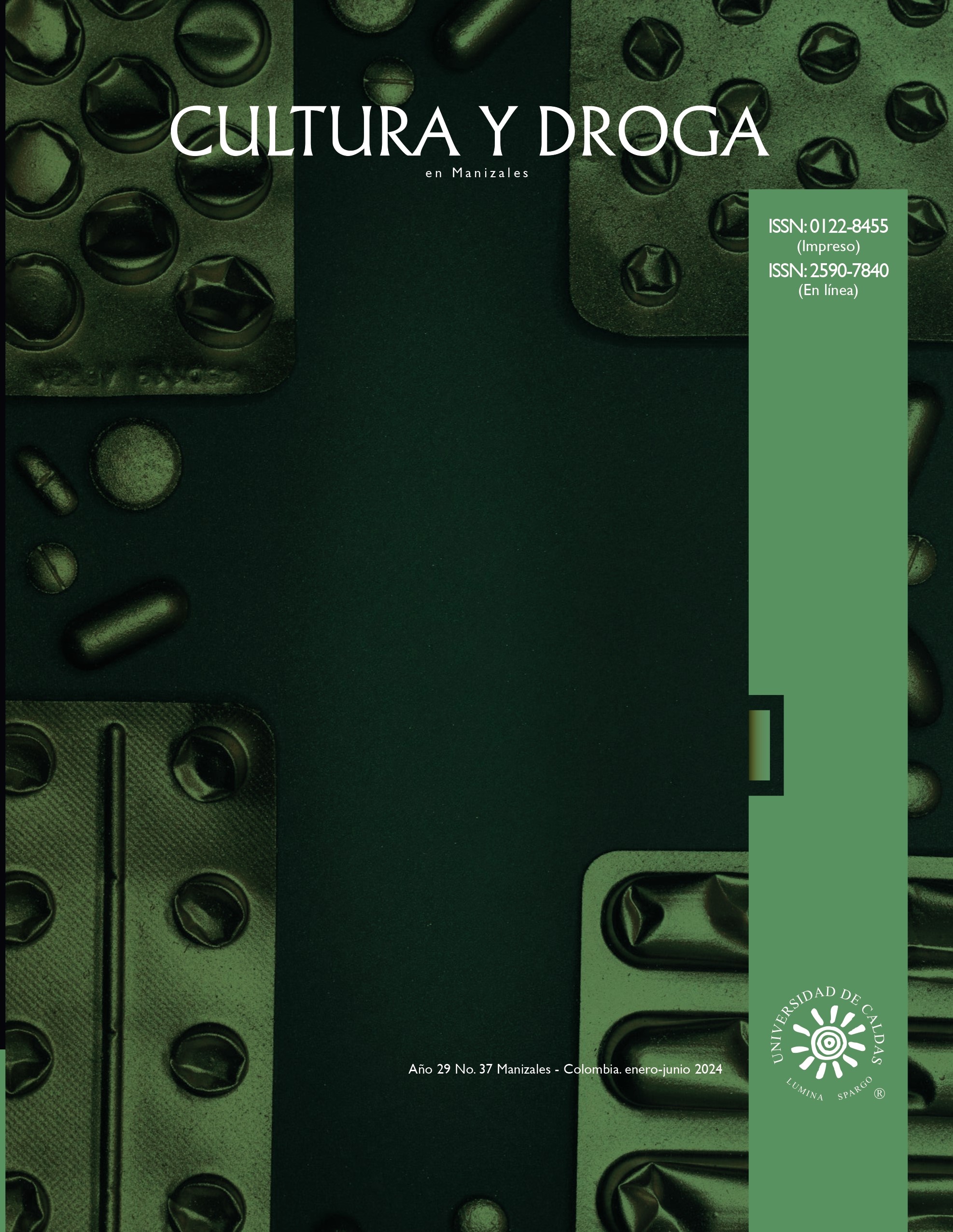Authors
Abstract
This paper deals with feeding as a problem and strategy for health government. It aims to problematize the way in which food and feeding are invested with a medicalnutritional meaning, health criteria, and conceived as resources and practices to care and improve health. It is a work of a theoretical-conceptual reflection that has the purpose of developing a conceptual scheme as an epistemic contribution to the field of social studies of health, with interest in food and medicalization processes. The relationship between food and health is inscribed in the theoretical triad of biopolitics, governmentality and medicalization. The concept of alimentary government of health is elaborated as a general phenomenon that articulates two complementary technologies: the biomedicalization of feeding and the medicamentalization of food. Both technologies are analyzed, as well as their relations with the phenomena of pathologization, pharmacologization, moralization of health and the imperative of healthy eating and optimization of life. Its implications for feeding practices are addressed as a praxis that involves beliefs, habits, knowledge, effects of power and subjective dispositions about food and diet. The conclusions are reflexive and point out the contributions in terms of objectification of these phenomena and reflexivity on biomedicalized feeding and medicamentalized foods on the horizon of the alimentary government of health and life.
References
Andreatta, M. M. (2013). La alimentación y sus vínculos con la salud desde la Teoría de las Representaciones Sociales. DIAETA, 31(142), 42-49. http://www.scielo.org.ar/pdf/diaeta/v31n142/v31n142a05.pdf
Barberá-Mateos, J. M. y Marcos, A. (2007). Alimentos funcionales. Aproximación a una nueva alimentación. Dirección General de Salud Pública y Alimentación de Madrid.
Bunge, M. (2012). Filosofía para médicos. Gedisa.
Burri, R. & Dumit, J. (2007). Biomedicine as Culture. Instrumental Practices, Technoscientific Knowledge and New Modes of Life. Routledge.
Camargo, K. R. (2013). Medicalização, farmacologização e imperialismo sanitário, Caderno de Saúde Pública, 29(5), 844-846.
https://doi.org/10.1590/S0102-311X2013000500002.
Cannellotto, A. y Luchtenberg, E. (2010). Medicalización y sociedad. Lecturas críticas sobre la construcción social de enfermedades. UNSAM.
Castro, E. (2007). Biopolítica y Gubernamentalidad. Temas & Matizes, (11), 8-18.
https://e-revista.unioeste.br/index.php/temasematizes/article/view/2498
Cediel, G., Pérez-Tamayo, E. M., González-Zapata, L. y Gaitán-Charry, D. (2021).Perspectivas actuales sobre alimentación: del nutricionismo a la alimentación saludable, solidaria y sustentable. Revista de la Facultad de Medicina, 70(3), e94252. https://doi.org/10.15446/revfacmed.v70n3.94252
Clarke, A., Shim, J., Mamo, L., Fosket, J. & Fishman, J. (2003). Biomedicalization: technoscientific transformations of health, illness and biomedicine. American Sociological Review, 68(2), 61-194. https://doi.org/10.2307/1519765
Conrad, P. (1992). Medicalization and social control. Annual Review of Sociology, (18), 209-232. https://www.jstor.org/stable/2083452
Conrad, P. (2007). The medicalization of society. On the transformation of human conditions into treatable disorders. Johns Hopkins University Press.
Contento, I. (2008). Nutrition education: linking research, theory, and practice. Asia Pacific Journal of Clinical Nutrition, 17(1), 176-179. https://pubmed.ncbi.nlm.nih.gov/18296331/
Costa, F. (2012). Biopolítica informacional. Apuntes sobre el gobierno de los públicos en las sociedades de control. Espacios Nueva Serie, (7), 138-153. https://lc.cx/w_gdZ3
Costa, F. y Rodríguez, P. (Comps.). (2017). La salud inalcanzable. Biopolítica molecular y medicalización de la vida cotidiana. Eudeba.
Crawford, R. (1980). Healthism and the medicalization of everyday life. International Journal of Health Services, 10(3), 365-388.
https://www.jstor.org/stable/45130677
Das, L., Bhaumik, E., Raychaudhuri, U. & Chakraborty, R. (2012). Role of nutraceuticals in human health. Journal of Food Science and Technology, 49(2), 173-183. https://doi.org/10.1007/s13197-011-0269-4
Faraone, S. y Bianchi, E. (2018). Medicalización, salud mental e infancias. Teseo.
Foucault, M. (1977). Historia de la sexualidad. I La voluntad de saber. Siglo XXI.
Foucault, M. (1996). Historia de la medicalización. En La vida de los hombres infames (pp. 85-105). Altamira.
García-Arnaiz, M. (2007). Comer bien, comer mal: la medicalización del comportamiento alimentario. Salud pública de México, 49(3), 236-242. https://saludpublica.mx/index.php/spm/article/view/6759/8469
García-Puertas, D. (2020). Influencia del uso de Instagram sobre la conducta alimentaria y trastornos emocionales. Revista Española de Comunicación en Salud, 11(2), 244-254. https://doi.org/10.20318/recs.2020/5223
Guidonet, A. (2005). Come, ¿y calla? Alimentación, (des)medicalización y cultura. Trabajo Social y Salud, (51), 333-360. https://dialnet.unirioja.es/servlet/articulo?codigo=1202869
Henderson, J., Ward, P., Coveney, J. & Taylor, A. (2009). Health is the number one thing we go for: Healthism, citizenship and food choice. En S. Lockie (ed.), The Future of Sociology. The Australian Sociological Association 2009 Annual Conference. TASA. https://core.ac.uk/download/pdf/14946996.pdf
Lazzarato, M. (2006). Políticas del acontecimiento. Tinta Limón.
Le Breton, D. (2002). Antropología del cuerpo y modernidad. Nueva Visión.
Lemm, V. (2010). Michel Foucault: neoliberalismo y biopolítica. Universidad Diego Portales.
Míguez, H. (2005). Determinaciones sociales del abuso epidémico de bebidasalcohólicas. Publicaciones del Seminario sobre Epidemiología Psiquiátrica, XVI(51), 1-139. https://ri.conicet.gov.ar/handle/11336/114419
Organización Mundial de la Salud. (2004). Estrategia mundial sobre régimen alimentario, actividad física y salud. ONU-OMS. https://apps.who.int/iris/bitstream/handle/10665/43037/924359222X_spa.pdf
Organización Panamericana de la Salud. (2020). El etiquetado frontal como instrumento de política para prevenir enfermedades no transmisibles. OPS. https://iris.paho.org/handle/10665.2/53013
Poulain, J. P. (2002). Sociologies de l'alimentation. Presses Universitaires de France.
Rodríguez-Díaz, S. (2008). El proceso de medicalización y sus consecuencias. Entre la moral, el poder y el negocio. Intersticios, 2(2), 71-85. https://intersticios.es/article/view/2714/2128
Rodríguez Zoya, P. (2010). La medicalización como estrategia biopolítica. A Parte Rei. Revista de Filosofía, (70), 1-27. https://acortar.link/nwA4c3
Rodríguez Zoya, P. (2017). El dispositivo biopolítico de medicalización alimentaria. En C. Flavia y P. Rodríguez (comps.), La salud inalcanzable. Biopolítica molecular y medicalización de la vida cotidiana (pp. 143-169). Eudeba.
Rodríguez Zoya, P. (2021). El cuidado de la salud y el gobierno de la vida en el ethos de revitalización. Una analítica interdiscursiva del proceso de envejecimiento. Sudamérica: Revista de Ciencias Sociales, (14), 21-48. https://fh.mdp.edu.ar/revistas/index.php/sudamerica/article/view/4715
Rodríguez Zoya, P. (2022). Biopolítica y subjetivación de los cuerpos medicalizados. Latin American Journal of Development, 4(3), 1061-1081. https://doi.org/10.46814/lajdv4n3-033
Rose, N. (2012). Políticas de la vida. Biomedicina, poder y subjetividad en el siglo XXI. UNIPE.
Sanhueza, J. y Valenzuela, A. (2012). Nutrigenómica: revelando los aspectos moleculares de una nutrición personalizada. Revista Chilena de Nutrición, 39(1), 71-85. http://dx.doi.org/10.4067/S0717-75182012000100008
Savino, P. (2011). Obesidad y enfermedades no transmisibles relacionadas con la nutrición. Revista Colombiana de Cirugía, 26(3), 180-195. https://www. revistacirugia.org/index.php/cirugia/article/view/183/169
Sfez, L. (2008). La salud perfecta. Crítica de una nueva utopía. Prometeo.
Zozaya, A. (2008). Aforismos y pronósticos de Hipócrates. Maxtor.

 PDF (Español)
PDF (Español)
 FLIP
FLIP






















